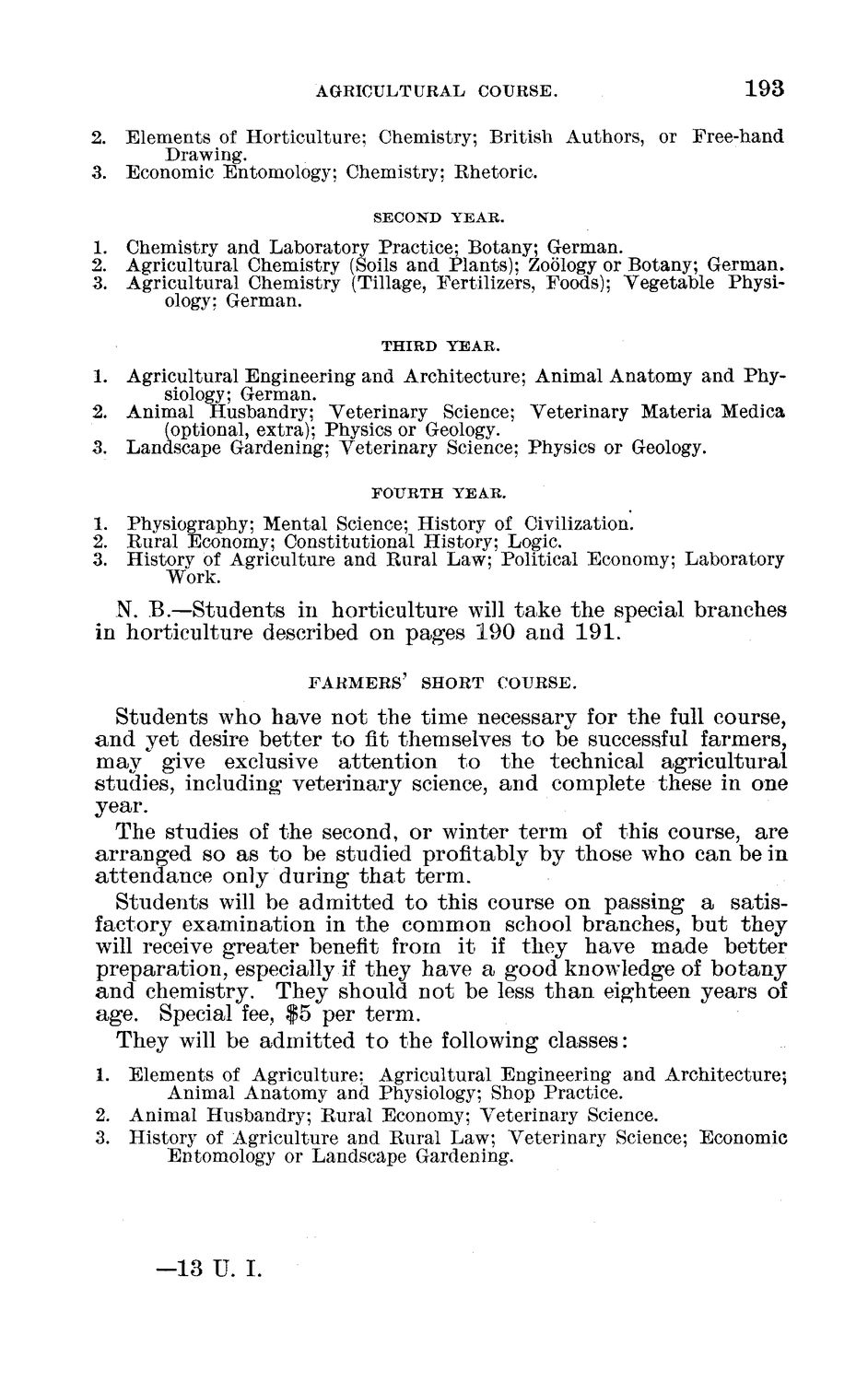Caption: Board of Trustees Minutes - 1890
This is a reduced-resolution page image for fast online browsing.

EXTRACTED TEXT FROM PAGE:
AGRICULTURAL COURSE. 193 2. Elements of Horticulture; Chemistry; British Authors, or Free-hand Drawing. 3. Economic Entomology; Chemistry; Ehetoric. SECOND YEAR, 1. Chemistry and Laboratory Practice; Botany; German. 2. Agricultural Chemistry (Soils and Plants); Zoology or Botany; German. 3. Agricultural Chemistry (Tillage, Fertilizers, Foods); Vegetable Physiology; German. T H I R D YEAR. 1. Agricultural Engineering and Architecture; Animal Anatomy and Physiology; German. 2. Animal Husbandry; Yeterinary Science; Yeterinary Materia Medica (optional, extra); Physics or Geology. 3. Landscape Gardening; Yeterinary Science; Physics or Geology. F O U R T H YEAR. 1. Physiography; Mental Science; History of Civilization. 2. Kural Economy; Constitutional History; Logic. 3. History of Agriculture and Rural Law; Political Economy; Laboratory Work. N. B.—Students in horticulture will t a k e t h e special branches in horticulture described on pages 190 and 1 9 1 . FARMERS' SHORT COURSE. Students who have n o t t h e time necessary for the full course, a n d yet desire better t o fit themselves t o be successful farmers, m a y give exclusive a t t e n t i o n t o the technical agricultural studies, including veterinary science, and complete these in one year. The studies of the second, or winter term of this course, are a r r a n g e d so as t o be studied profitably by those who can be in a t t e n d a n c e only during t h a t term. Students will be admitted t o this course on passing a satisfactory examination in the common school branches, b u t they will receive greater benefit from it if they have made better preparation, especially if they have a good knowledge of b o t a n y a n d chemistry. They should not be less t h a n eighteen years of age. Special fee, $5 per term. They will be admitted t o the following classes: 1. Elements of Agriculture; Agricultural Engineering and Architecture; Animal Anatomy and Physiology; Shop Practice. 2. Animal Husbandry; Kural Economy; Veterinary Science. 3. History of Agriculture and Eural Law; Yeterinary Science; Economic Entomology or Landscape Gardening. —13 U. I.
|